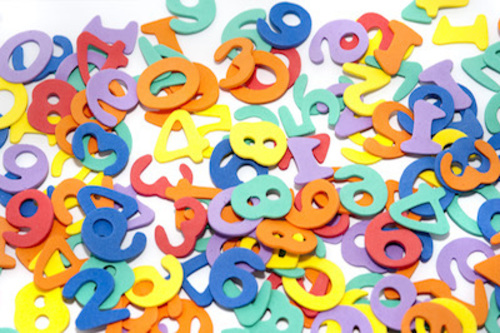Zaben's Imaginative Math
 Zaben Oldwheel was always a kid with big dreams and imagination. However since Zaben spent most of his time daydreaming, he never learnt about the number 3. Every time he would reach a number with 3 in it, he would simply skip to the next one. He starts off by counting
1
,
2
,
4
,
5
,
…
Zaben Oldwheel was always a kid with big dreams and imagination. However since Zaben spent most of his time daydreaming, he never learnt about the number 3. Every time he would reach a number with 3 in it, he would simply skip to the next one. He starts off by counting
1
,
2
,
4
,
5
,
…
Now, if Zaben Oldwheel were to count from 1 to 100, how many terms would there be?
(Hint: Remember in Zaben's mind any number with 3 doesn't exist.)
The answer is 81.
This section requires Javascript.
You are seeing this because something didn't load right. We suggest you, (a) try
refreshing the page, (b) enabling javascript if it is disabled on your browser and,
finally, (c)
loading the
non-javascript version of this page
. We're sorry about the hassle.
8 solutions
That's cool, you jus did the base work.
In order for us to solve this problem we need to eliminate any number that has the number 3. So we are going to eliminate 3,13,23,30 to 39,43,53,63,73,83.93. this give us a total os 19 terms eliminated. So if 1 to 100 had originally 100 terms it will have only 81 since 100 -19=81
I forget to subtract from 100
Firstly, arrange the 100 numbers in a 10*10 grid, with the first row being 1,2,3,4,5,6,7,8,9,10 and the second row being 11,12,13,14,15,16,17,18,19,20.
Notice that the third row and the third column are to be removed, leaving us a 9*9 grid.
Therefore there are 81 terms.
In his calculation the numbers 3 , 1 3 , 2 3 , 3 0 , 3 1 , 3 2 , 3 3 , 3 4 , 3 5 , 3 6 , 3 7 , 3 8 , 3 9 , 4 3 , 5 3 , 6 3 , 7 3 , 8 3 , 9 3 don,t exist so a total of 1 9 numbers for him don,t exist from 1 to 1 0 0 so there are 1 0 0 numbers form 1 to 1 0 0 so total numbers for him 1 0 0 − 1 9 = 8 1
Using multiplication principle: for a 1-digit number: _ this can be from 0 to 9, excluding 0 and 3, then 8 possibilities. for a 2-digit number: _ _ the first digit can't be a 0 or a 3, and the second digit cannot be a 3, so there are 8 possibilities for the first digit and 9 for the second digit ---> 8x9 = 72 numbers without the 3. for a 3-digit number: _ _ _ this is number 100. ---> 1 number without the 3.
Answer: 8 + 72 + 1 = 81.
Basic Solution: since the thirties have 3, subtract 10 from 100. Each set of ten has a number with 3. So subtract 9, for you already counted the one in the thirties. The answer is 81
19 terms like -3,13,23,30,31,32,33,34,35,36,37,38,39,43,53,63,73,83,93 he wont count. so there will be (100-19)=81 terms
Use all possible combinations for the units' nd tens' place except 3
Both units & tens place can be arranged 9 ways _ _ so 81 ways but if course remove nd add 1 (for 00 - remove & for 100 - add) way which will intern give 81
In his calculations there are 9 digits. They are 0, 1, 2, 4, 5, 6, 7, 8 and 9. So, (100)₉ = 1x9² + 0x9¹ + 0x9⁰ = 81 + 0 + 0 = (81)₁₀ => 81